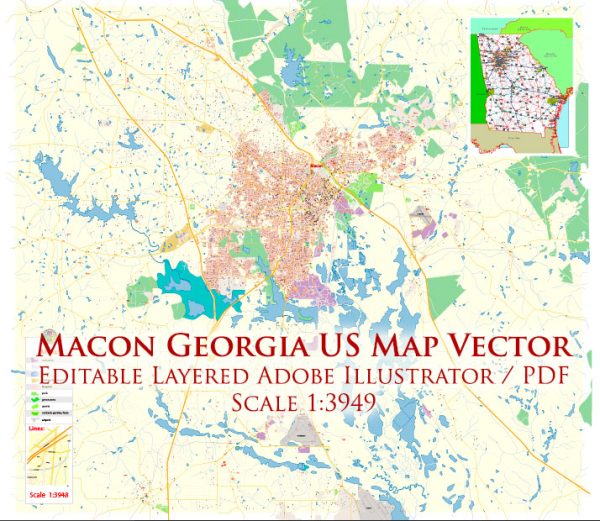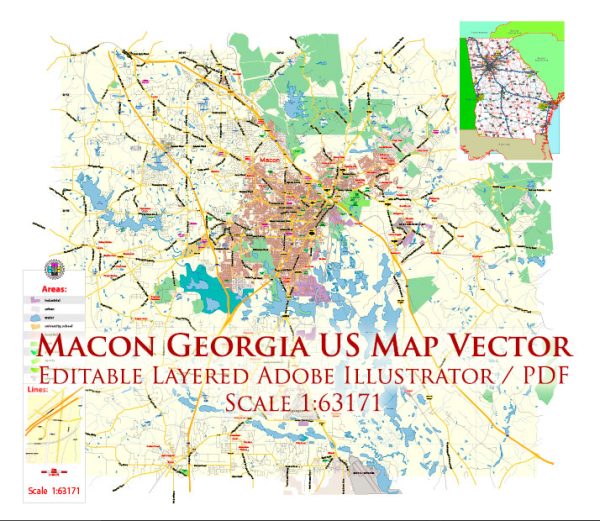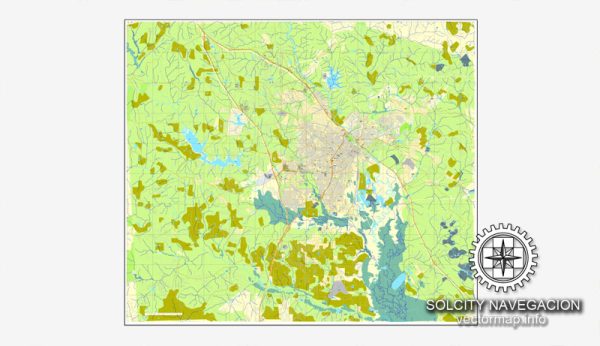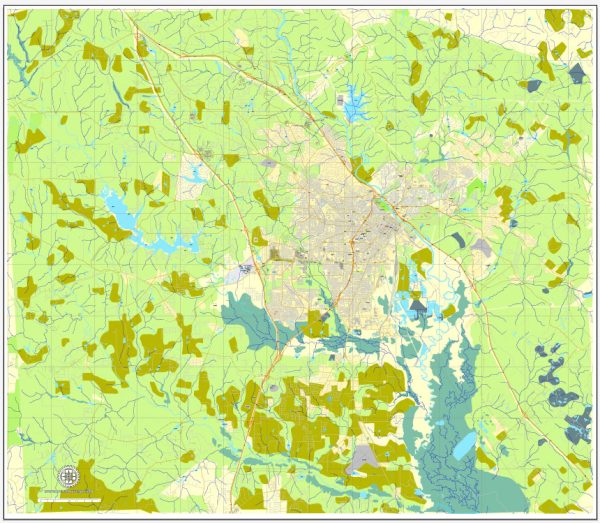Macon, Georgia, has a rich history of urban development that dates back to its founding in the early 19th century. Here is an overview of key aspects of Macon’s urban development:
- Founding and Early Growth (1823-1860):
- Macon was founded in 1823 at the geographic center of Georgia. It quickly became a transportation hub due to its location on the Ocmulgee River and the intersection of major Native American trading paths.
- The city’s early growth was fueled by the cotton industry, and Macon became a major cotton trading center. The wealth generated from cotton plantations contributed to the construction of impressive antebellum homes and buildings.
- Civil War and Reconstruction (1861-1877):
- During the Civil War, Macon served as a significant Confederate industrial and medical center. After the war, the city faced the challenges of Reconstruction, including economic and social changes.
- Post-Reconstruction Era and Industrialization (1877-1929):
- In the late 19th century, Macon experienced economic diversification beyond agriculture. The city became an industrial center, with industries such as textiles, lumber, and manufacturing driving economic growth.
- The construction of the railroad further enhanced Macon’s importance as a transportation hub, facilitating the movement of goods and people.
- 20th Century Growth and Challenges (1930-1970):
- The mid-20th century saw continued growth and development, with the expansion of educational institutions like Mercer University and the establishment of Robins Air Force Base, contributing to the local economy.
- However, like many other cities, Macon also faced challenges related to urbanization, including suburbanization and the decline of the downtown area as people and businesses moved to the outskirts.
- Late 20th Century Revitalization Efforts (1970-2000):
- In the late 20th century, Macon, like many other cities, experienced urban decay in its downtown area. Efforts were made to revitalize the downtown, including historic preservation initiatives and the development of the Macon Mall.
- The Ocmulgee Heritage Trail, a riverwalk and trail system, was established, providing recreational opportunities and promoting connectivity within the city.
- Recent Developments (2000-Present):
- In recent years, Macon has continued its efforts to revitalize the downtown area. The College Hill Corridor project aimed to enhance the connection between Mercer University and downtown Macon, promoting economic and cultural development.
- The city has also focused on preserving its historic architecture, with initiatives to rehabilitate and repurpose historic buildings for contemporary use.
Macon’s urban development is a dynamic story that reflects the broader historical trends of the American South, from its antebellum roots to its industrialization, challenges during the mid-20th century, and ongoing efforts at revitalization in the 21st century.





 Author: Kirill Shrayber, Ph.D. FRGS
Author: Kirill Shrayber, Ph.D. FRGS